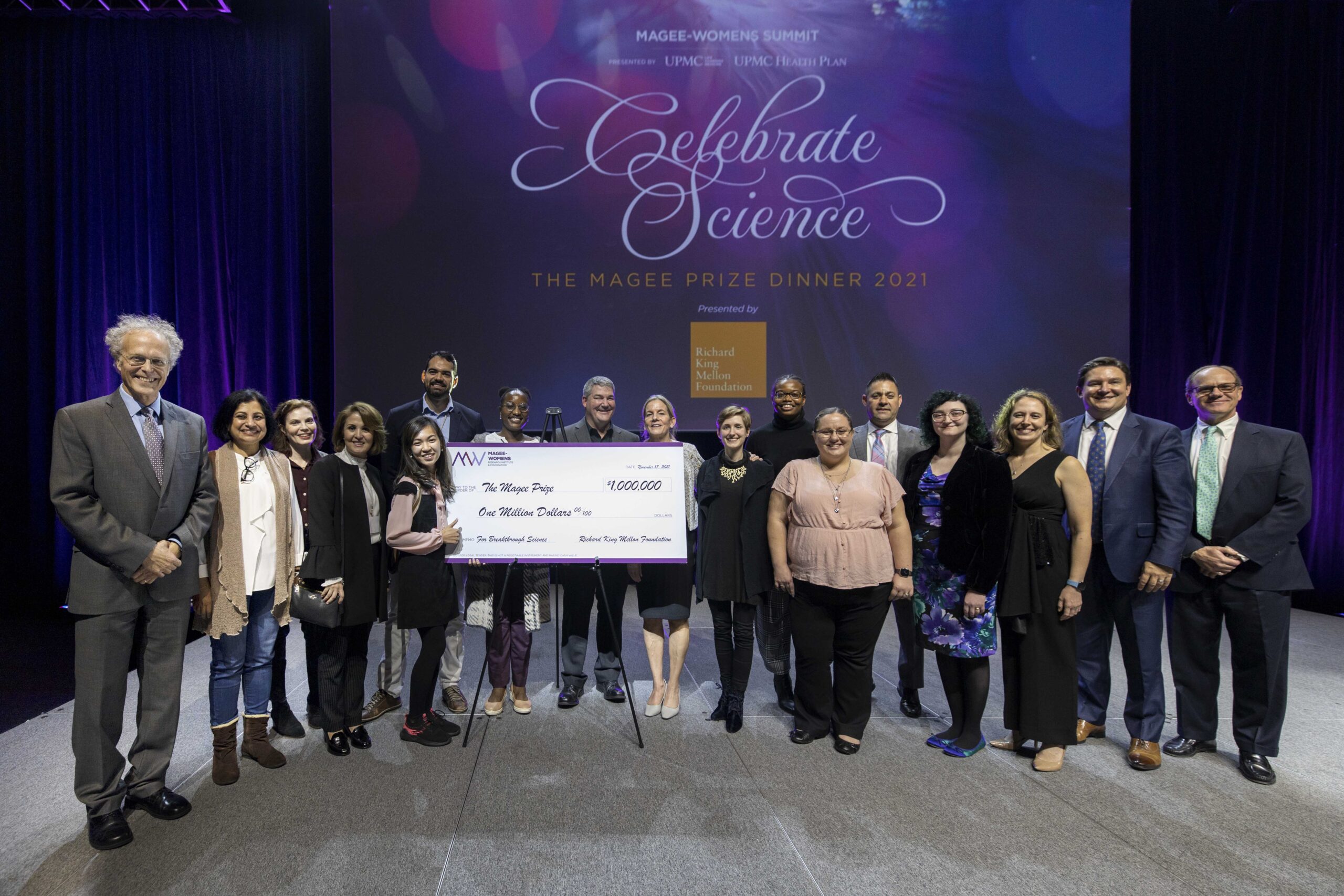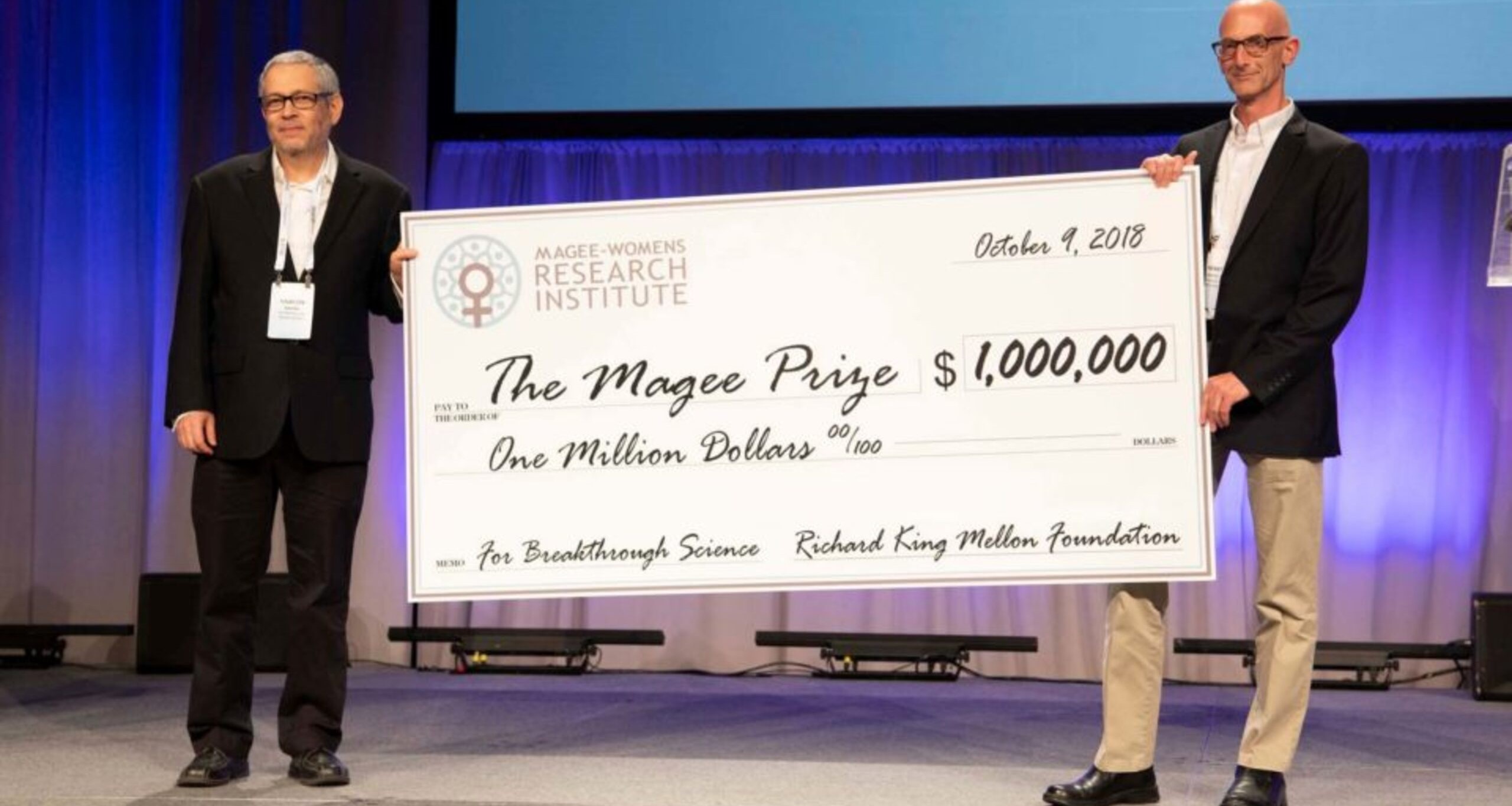HOME >> MAGEE PRIZE

The 2024 Magee Prize
Magee-Womens Research Institute announces that it will host its 3rd Magee-Womens Summit, to be held November 13-14, 2024, in Pittsburgh, Pennsylvania. A major event at the 2024 Magee-Womens Summit will be the awarding of the 3rd Magee Prize — a $1 million prize.
A key goal of this 2–3 year collaborative research award is to promote research networks between Pittsburgh and other investigators to advance women’s and reproductive health. Therefore, the joint proposal must be led by at least two co-Principal Investigators (PIs): At least one PI from Magee-Womens Research Institute and at least one PI (who may be the submitting PI) from any institution outside Pittsburgh, located in the U.S. or worldwide. There is no limit to the number of collaborating PIs or co-Investigators.
Proposals can include any project within the reproductive sciences, women’s health, and/or a component of early human development. Applications are encouraged in any relevant biological discipline, from basic or translational biology to clinical and health services research. Novelty may be conceptual or methodological, involve new models or drugs, and ideally based on high-risk and high-reward strategies.
Submission
Letters of intent are required and due no later than February 15, 2024. The letter, submitted via email to prize@mageesummit.org, must provide the project title, the PIs (name, institution, and email address), and a 200-word abstract of the proposed research.
Selection: After review of the letters of intent, approved research teams will be provided detailed instructions regarding the format for submission of full proposals, similar in structure to the NIH “R21” mechanism, by February 22, 2024. The submission deadline for full proposals will be May 2, 2024. The PIs of the top 3 projects, as determined by an external review committee, will be invited to present their proposals at the Magee-Womens Summit on November 13-14, 2024, where the finalists will be announced following voting by conference attendees.
Prize structure:
• The first prize consists of a $972,000 total research award (which includes 8% indirect costs) and a $18,000 personal award, shared among the collaborating PIs.
• Second prize consists of a $6,000 award, shared among the collaborating PIs.
• Third prize consists of a $4,000 award, shared among the collaborating PIs.
FAQs/Clarifications
What role can MWRI Members serve in a project?
Each proposal must have at least one MWRI Primary Member who serves as a PI or Co-PI. However, additional MWRI members may serve as co-Investigators on a project. Also, an MWRI Primary Member may participate in more than one application.
Can MWRI Affiliate or Allied Members serve to meet the PI/Co-PI requirement?
No. They can serve as collaborating investigators, but an MWRI Primary Member must serve as PI or Co-PI.
Where can I find a list of MWRI Primary Members?
Please see: MageeWomens.org/Primary-Investigators
Address any questions regarding the Magee Prize to prize@mageesummit.org.
2021 Magee Prize Winning Team

The 2021 Magee Prize, a $1 million award, was granted to an international team led by Dr. Pamela Moalli, Director of Urogynecology and Pelvic Reconstruction Surgery at UPMC Magee-Womens Hospital and Magee-Womens Research Institute.
The team's groundbreaking research focuses on developing innovative biomaterials to repair tissue loss in women facing compromised vaginal structure and function resulting from pelvic cancers, ovariectomy, chemotherapy, or radiation treatments.
2018 Magee Prize Winning Team

The 2018 Magee Prize went to a University of Pittsburgh team led by Dr. Yaacov Barak.
The team will utilize the $1 million Magee Prize from the Richard King Mellon Foundation to investigate how placental defects may lead to congenital heart disease, aiming to identify early interventions to correct or prevent such defects.
